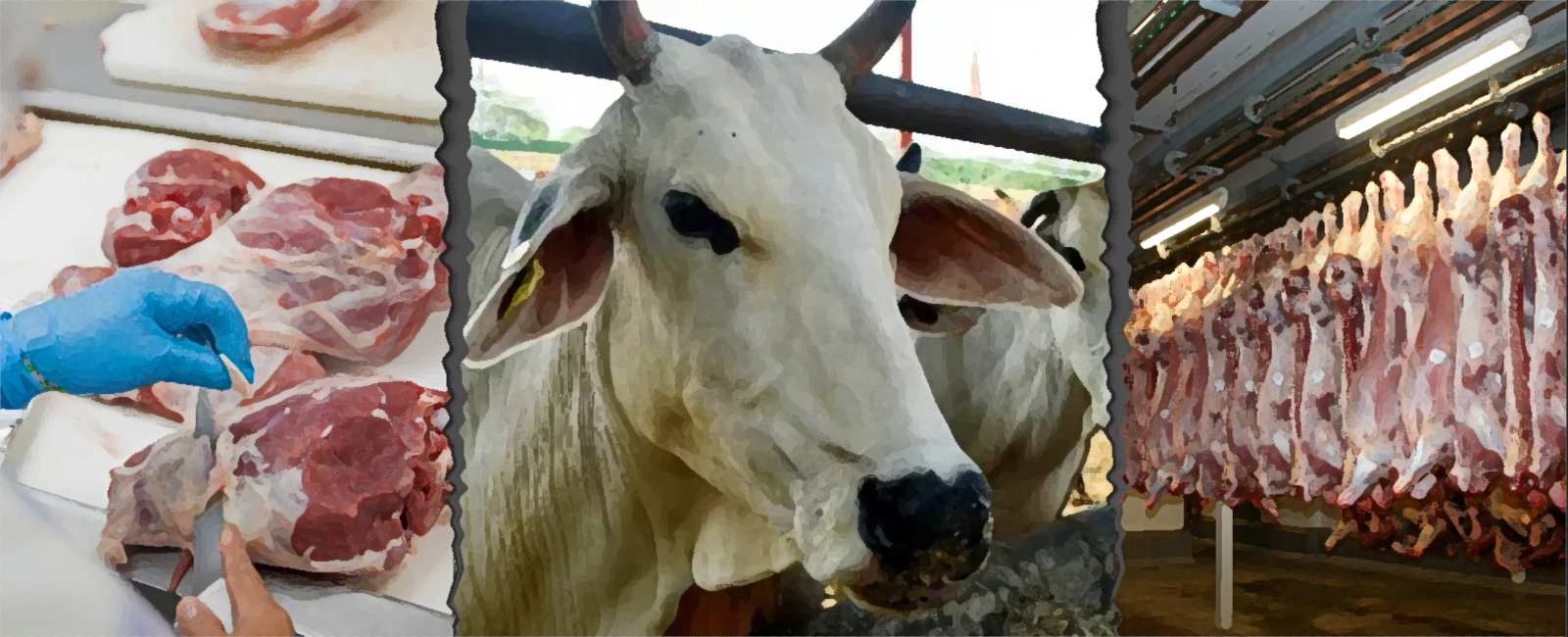Pakistan's beef deepens its bite in China's market — but can the taste last?
Currently, Pakistan's annual meat exports stand at $334m, while global halal meat market is valued at $3tr

As Pakistan’s economic indicators show tentative signs of recovery despite deep structural challenges, a fresh boost has come from an unlikely source: rising beef exports to China.
For a country that has long struggled to broaden its export basket, seeing Pakistani beef make its way to Chinese supermarket shelves is more than just a trade story — it’s a quiet breakthrough. It tells of years spent securing approvals, meeting strict health standards, and improving safety measures, now finally translating into steady orders and a sense of momentum.
Notably, Pakistan’s exports climbed to $31.75 billion in FY2024–25, fuelled by textiles and emerging sectors, as the government turns to AI-driven strategies and new market plans to sustain growth amid global trade uncertainty.
According to the latest numbers released by the government, the heat-treated beef exports to China have exceeded $5.24 million in the first half of this year, while boiled meat exports reached $2.36 million, signalling potential growth for Pakistan in China’s meat market despite ongoing challenges.
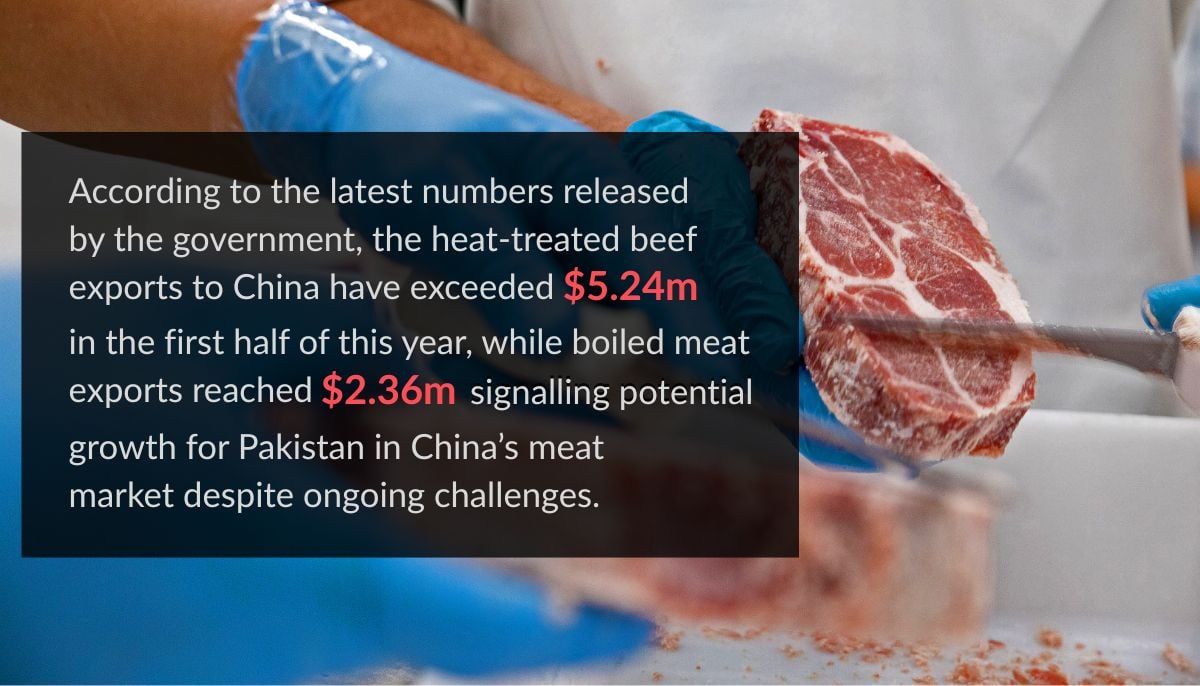
The surge is reflective of the fact that Pakistan’s meat is solidifying its position as a high-demand product in the Chinese market. This performance has favoured Pakistan to outpace regional competitors, most notably Mongolia, which exported $3 million worth of boiled beef to China during the same six-month period in 2025.
Credit goes to Pakistan’s strict compliance with China's rigorous food safety, hygiene, and quarantine regulations, particularly for heat-treated meat products such as boiled beef.
Chinese senior diplomat at the Chinese embassy in Pakistan, Mr Wang Shengjie, told Geo.tv, “This development testifies to a good momentum, of course, with huge potential.”
He said it will not only benefit Pakistan’s meat industry but also strengthen economic ties between the two countries.
When asked, he agreed that such an upward trajectory also highlights the benefits of bilateral trade mechanisms and preferential agreements that have opened Chinese markets more widely to Pakistani goods, a significant milestone in China-Pakistan bilateral trade.
It ushers in a huge opportunity for local exporters to tap into the $15 billion Chinese market. Currently, Pakistan’s annual meat exports stand at a modest $334 million, while the global halal meat market is valued at a staggering $3 trillion.
Pakistan’s entry into the Chinese market became a reality when the General Administration of Customs of China (GACC) granted permission for beef exports on June 11, 2023.
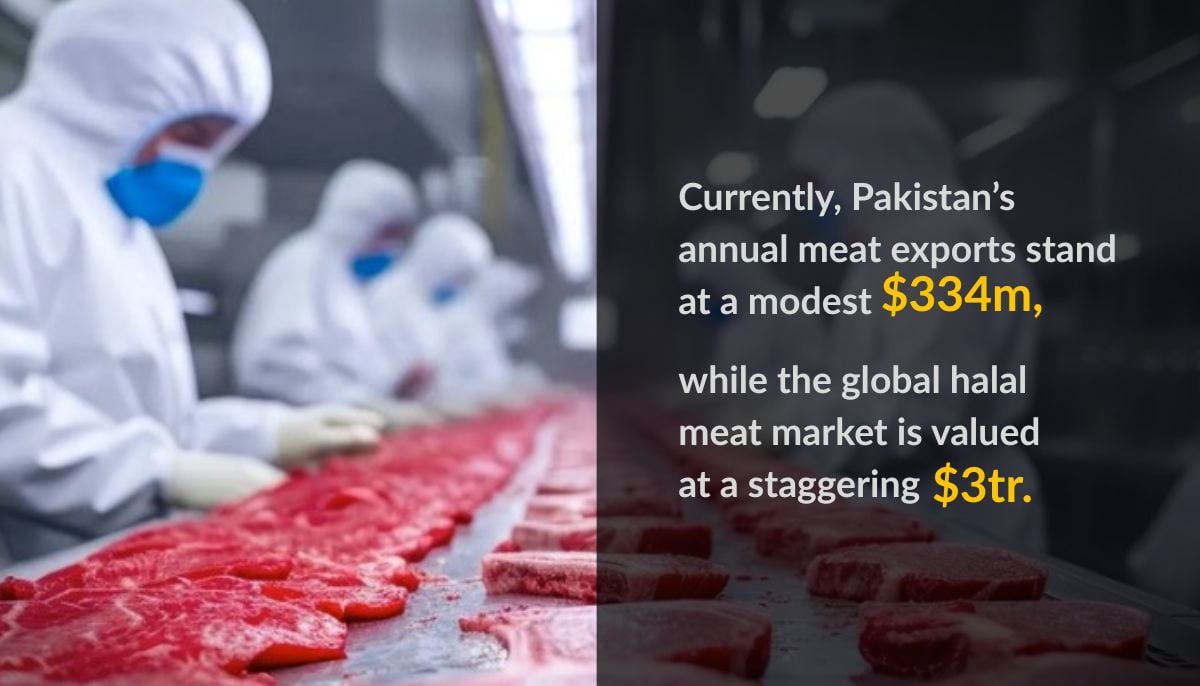
In a notification to the Pakistan Stock Exchange (PSX), Pakistani company TOMCL was the first from South Asia to successfully export cooked/heat-treated frozen beef products to the People’s Republic of China on December 31, 2023.
Chinese Consul General in Lahore Zhao Shiren said, “It is a positive development.” Hopefully, he added, it will stay on the right trajectory in the coming months and years.
“The Chinese side always encourages more export of high-quality agricultural products from Pakistan to China.
“This not only helps Pakistan maximise its natural resources and reduce the trade deficit with China but also boosts foreign exchange earnings and improves the livelihoods of the large population.
“It is indeed a win-win case for further promoting bilateral relations,” he said.
For many years before 2023, China had banned beef imports from Pakistan because of its status as an FMD (foot-and-mouth disease) affected country.
It was mainly owing to a lack of an animal identification and traceability system, which is a common practice internationally because it helps exporting countries maintain records of animal health, medication, and prevention plans. It is one of the top requirements of the meat-importing nations
Things started improving in 2019 when the two time-tested friends entered the FMD Free Zone Agreement, allowing Pakistan to move from the World Organisation for Animal Health (OIE)’s Stage-2 category, where FMD is limited to target areas, to Stage-3.
Furthermore, in 2022, the Punjab Information Technology Board (PITB), under an agreement with the Food and Agriculture Organization of the United Nations (FAO), developed the Pakistan Animal Identification and Traceability System (PAITS) and rolled out its implementation.
Whereas in September 2023, an FMD-free compartment, the Royal JW Buffalo Farm, began operating in Sheikhupura. Spread over 70 acres in Mouza Kalsian Bhattian, Tehsil Safdarabad, District Sheikhupura, it became the first certified disease-free area, paving the way for China to lift its ban on Pakistani beef.
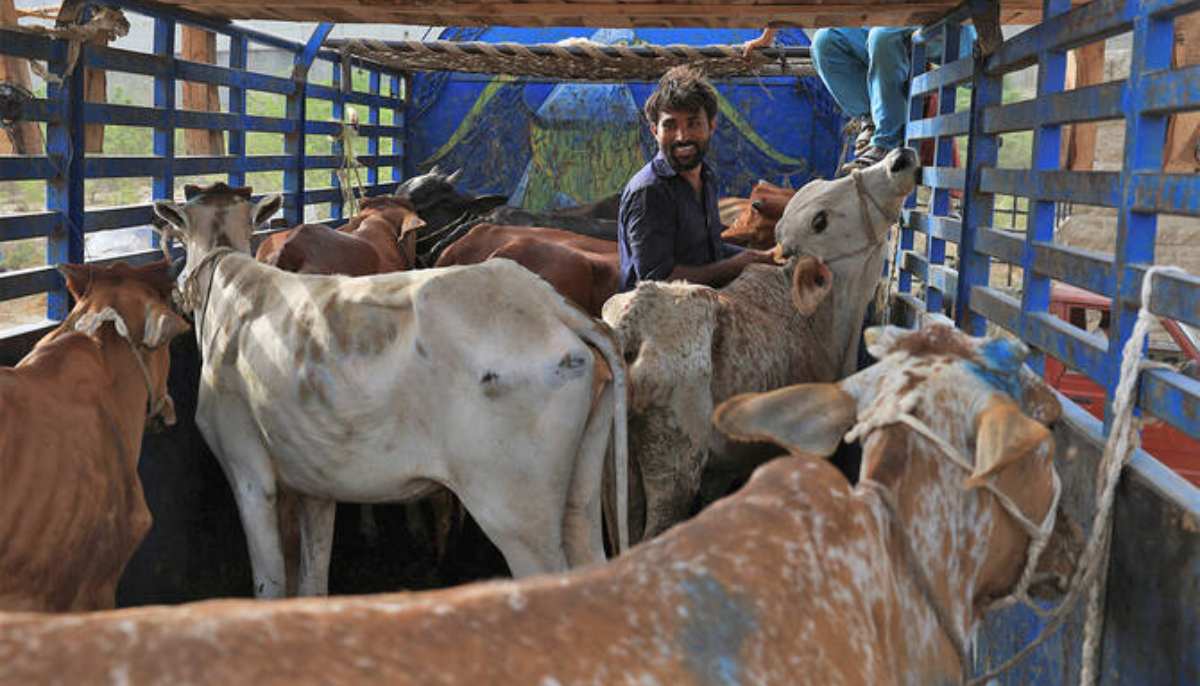
Pakistan-China Joint Chamber of Commerce and Industry (PCJCCI) Secretary General Muhammad Salahudin Hanif hailed the progress, but at the same time, he also raised concerns over it.
“Pakistan’s animal husbandry sector is still underdeveloped and needs advanced technologies for industrial upgrading and extension of the value chain.
“If we want to sustain momentum in beef exports, a mandatory mechanism to keep the supply chain intact must be developed.
“The future of Pakistan’s beef export journey in China depends on how we apply modern fattening techniques and phytosanitary standards,” Hanif added.
Amid these challenges, Pakistan gained an edge in August 2024 by beginning domestic production of the FMD vaccine in collaboration with China, marking a leap forward in creating more FMD-free zones and boosting meat exports.
Under a partnership with China Agricultural University, Northwest A&F University, and Yangling Jinhai Biotechnology Co Ltd, China exported 100,000 doses of trivalent inactivated FMD vaccine antigens to Pakistan.
The antigens, tested by the National Institute of Biotechnology and Genetic Engineering (NIBGE) in Faisalabad, were transported through a cold-chain process and will be used to produce local FMD vaccines under Chinese protocols — a step towards self-sufficiency in vaccine production and supply for Pakistan’s domestic needs.
The biotechnology transfer is underpinned by two key projects: “Demonstration and Promotion of Key Technologies for the Prevention and Control of Major Livestock Diseases in Pakistan” and “Demonstration and Promotion of Key Technologies for the Prevention and Control of Major Livestock Diseases in Pakistan.
According to Ali Ahmed, an official with the All-Pakistan Meat Exporters and Processors Association (APMEPA), one of the main challenges in expanding Pakistan’s meat exports to China is the low selling price. Since China is the world’s biggest beef importer, the market is highly competitive.
“If Pakistan is to strengthen its niche in China, it must adopt practices such as forage cultivation, cattle breeding, modern farm construction and management, waste treatment and utilisation, veterinary drugs and vaccines, beef processing, as well as improved storage and refrigerated transportation,” Ahmed added.
Liu Jun, who is associated with the Chinese Meat company Yuhu Cold Chain Chengdu, said that Pakistan needed to step up its beef promotion in China.
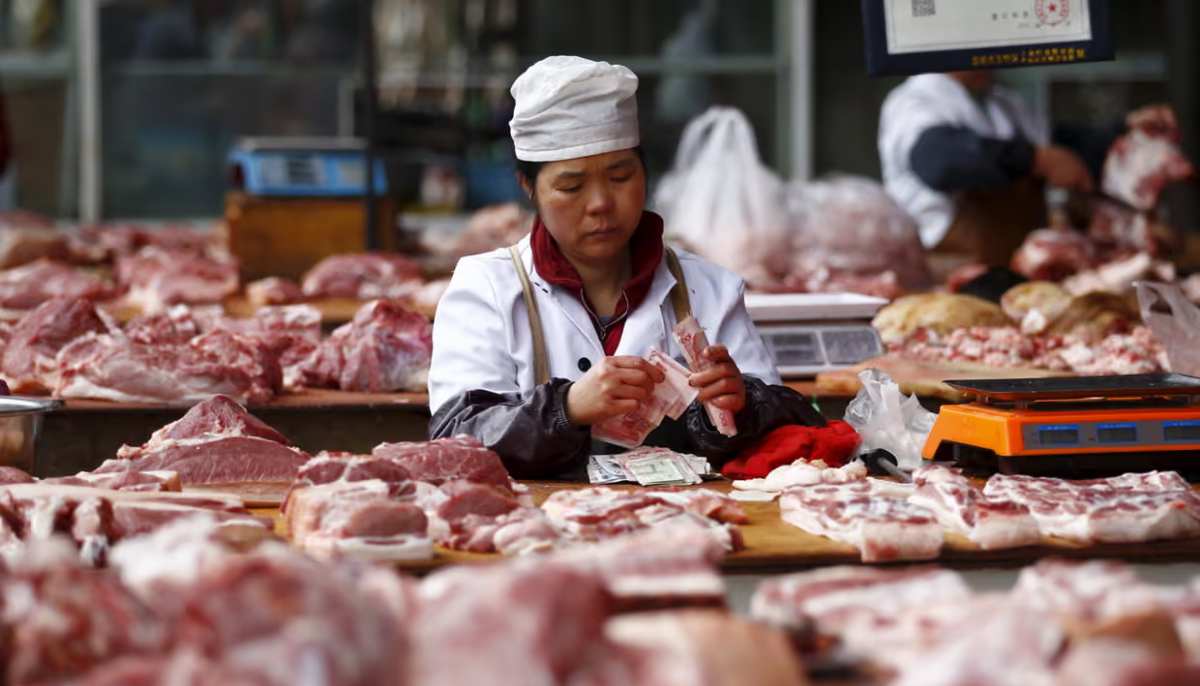
“We need to expand our promotional channels to help people gain a better understanding and appreciation of Pakistani beef, which I believe will lead to increased sales,” according to Jun.
In another major development, the Livestock & Livestock and Dairy Development Department of Punjab also officially launched the FMD Control Strategy (2024-2029) to combat the spread of this livestock disease.
The Food and Agriculture Organisation (FAO) of the United Nations has worked on FMD control in Pakistan since 2008. Under the FAO-OIE Progressive Control Pathway (FMD-PCP), Pakistan moved from stage 0 to stage 1 in 2009 and reached stage 2 in 2015.
The FAO and the Ministry of National Food Security and Research later signed a $6.6 million project in Islamabad titled Risk-based Control of FMD in Pakistan. With an FMD-free zone in place and local vaccine production underway, Pakistan has reached stage 3, opening further international markets for meat and other livestock products.
Giving his input, Luo Jianxue, President of Lahore Overseas Chinese Association (LOCA), said that China opened its heat-processed beef market to Pakistan in June 2023, and within just two years, Pakistan became a leading supplier.
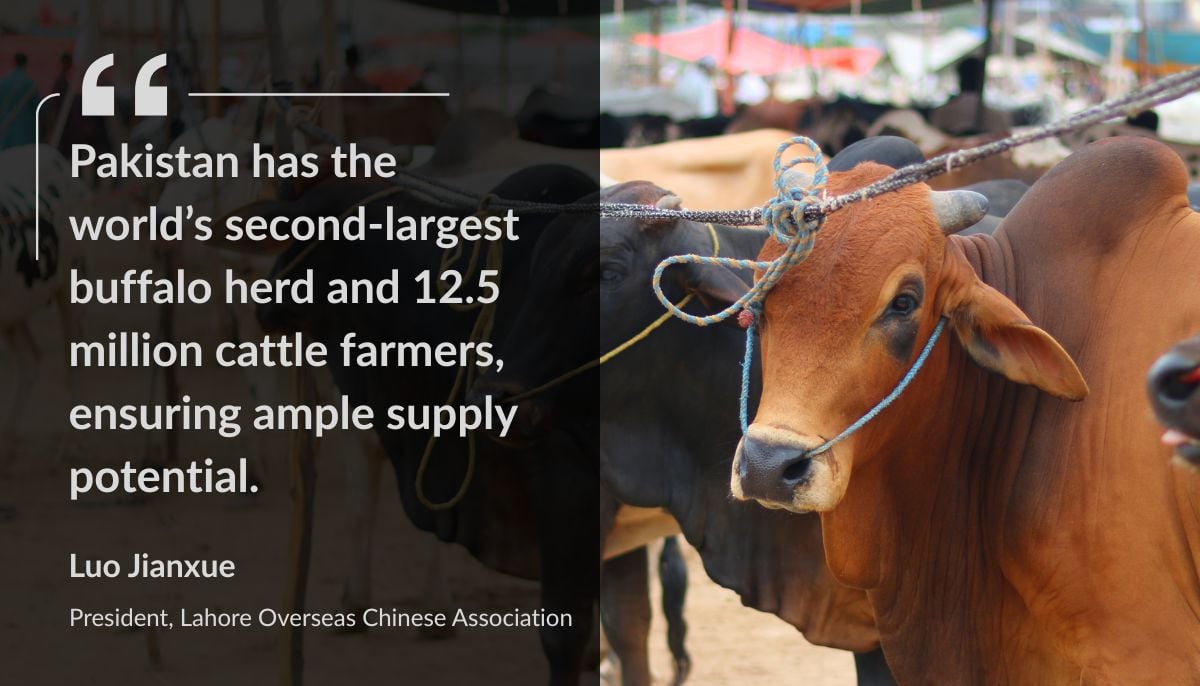
“Pakistan has the world’s second-largest buffalo herd and 12.5 million cattle farmers, ensuring ample supply potential.”
In July 2025, a China-Pakistan meat industry B2B event was held in Chengdu, where Pakistani firms showcased their processed beef export advantages, and Chinese companies explored collaboration models, according to Jianxue.
“Pakistan’s halal-certified meat is highly sought after in China, serving as a key growth driver,” the LOCA chief added.
Regarding challenges, he said that Pakistani beef currently does not qualify for zero-tariff benefits under the China-Pakistan FTA, affecting price competitiveness. “If quarantine and tariff issues are further resolved, Pakistan’s meat exports to China will see sustained growth,” he hoped.
The Asian giant alone consumes 23% of the world’s total beef production, while Pakistan exports only 0.5% of the world’s consumption.
Pakistan breaking into China’s beef market marks a big step forward but keeping that foothold won’t be easy. Industry insiders are blunt: unless the country can keep herds disease-free, ramp up vaccine output, and modernise farms and processing plants, the early wins could quickly fade in one of the toughest meat markets in the world.
Yasir Habib Khan is a freelance journalist based in Pakistan.
Header and thumbnail image by Geo.tv



